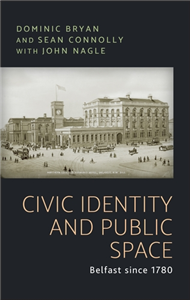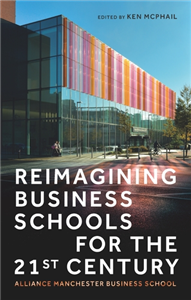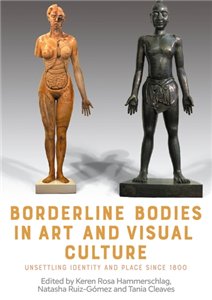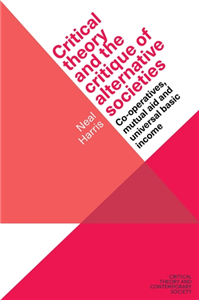Your Search Results
-
Scholastic Inc.
For 100 years, Scholastic has partnered with schools to support student learning. Today, the Company is the world’s largest publisher and distributor of children’s books, a leading provider of literacy curriculum, professional services and classroom magazines, and a producer of educational and entertaining children's media.
View Rights Portal
-
Promoted ContentChildren's & YADecember 2023
QuBuild
A guided approach to asking better scientific questions in primary schools
by Lynne Bianchi, Tina Whittaker
This book brings a new classroom approach for primary teachers to teach the explicit knowledge of scientific question-asking. This is an essential skill when children are involved in finding out about the world around them through science enquiry. Challenging the assumption that because children ask lots of questions in science, this automatically leads to meaningful learning of the enquiry curriculum, QuBuild is important for all children developing as scientific thinkers. It outlines an approach to explicitly plan for, practice and develop the craft of scientific question-asking. Unlock your children's science learning potential by exploring the QuBuild Process.
-
Promoted Content
-
 Trusted Partner
August 2016
Trusted Partner
August 2016How to Survive the First Years of School
by Petra Jansen, Stefanie Richter
With a pinch of humor, the authors tell the story of Julia, her husband Peter, and their little whirlwind Alexander, who is starting elementary school. How do the three of them deal with this new stage in Alexander’s life? What problems do they encounter and what do they find stressful? The book sets out to help parents, uncles, aunts, and grandparents understand how children of elementary school age develop. Professionals who work with children of this age may also find it of interest. Petra Jansen and Stefanie Richter are both parents and psychologists. Through the fictional Julia they share their subjective experience as mothers, while also providing background information based on scientific studies. They demonstrate in a clear and entertaining way that some of the problems experienced by children of this age are not unexpected and are no cause for despair. Target Group: Parents of children in their early years at school.
-
 Trusted Partner
Humanities & Social SciencesMarch 2022
Trusted Partner
Humanities & Social SciencesMarch 2022Civic identity and public space
Belfast since 1780
by Dominic Bryan, Sean J. Connolly, John Nagle
Civic identity and public space, focussing on Belfast, and bringing together the work of a historian and two social scientists, offers a new perspective on the sometimes lethal conflicts over parades, flags and other issues that continue to disrupt political life in Northern Ireland. It examines the emergence during the nineteenth century of the concept of public space and the development of new strategies for its regulation, the establishment, the new conditions created by the emergence in 1920 of a Northern Ireland state, of a near monopoly of public space enjoyed by Protestants and unionists, and the break down of that monopoly in more recent decades. Today policy makers and politicians struggle to devise a strategy for the management of public space in a divided city, while endeavouring to promote a new sense of civic identity that will transcend long-standing sectarian and political divisions.
-
 Trusted Partner
November 2025
Trusted Partner
November 2025Reimagining business schools for the 21st century
Alliance Manchester Business School
by Kenneth McPhail, James Pendrill
Whether it's dealing with regional economic disparities, global geopolitical upheaval, climate change, or the impact of new technologies such as artificial intelligence, we are living in pivotal times. To mark its 60th anniversary in 2025, this accessible book from Alliance Manchester Business School outlines in detail how business schools can play a significant role in confronting these huge challenges, and equip the next generation of business leaders with the skills they need to embrace them. Informing public and political debate on the role of business in both the causes and solutions to our biggest challenges the book offers a rethinking of the role of business in society. It will also discuss specific examples of how collaborations with business are leading to impact and change in society. Featuring a range of thought-provoking essays co-authored by eminent academics and business leaders, this collection will challenge the status quo and outline how business and management research is helping address grand challenges, generate economic growth, inform policy development, and define business thinking over the next generation.
-
 Trusted Partner
Trusted Partner
-
 Trusted Partner
Trusted Partner
-
 Trusted Partner
Trusted Partner
-
 Trusted Partner
2023
Trusted Partner
2023Pharmaceutical Technician Training: the Connecticum
Learning field-oriented and interdisciplinary 1st school year
by Simone Gansewig and Dr. Robert Wulff
Scenes from the life of a pharmaceutical technician in her everyday life in a shared flat and the pharmacy are the gimmicks (and cliffhangers) in this book on pharmaceutical technician training. These develop into their connections to everyday life in a pharmacy and to the pharmaceutical knowledge that is conveyed at pharmaceutical technician school classes. The work combines different media forms and learning types as “Connecticum”. Podcasts, videos, and worksheets that can be accessed via QR code, as well as references to literature and information sources, supplement the content and make learning more varied and interesting. This innovative workbook for pharmaceutical technician training – each school year is accompanied by its own volume - is the ideal partner for subject-oriented and interdisciplinary teaching. It is also suitable for practically-oriented, independent work and a review of the entire training content – with a guaranteed fun factor!
-
 Trusted Partner
The ArtsFebruary 2019
Trusted Partner
The ArtsFebruary 2019Contemporary Korean cinema
Culture, identity and politics
by Hyangjin Lee
The first in-depth, comprehensive study of Korean cinema offering original insight into the relationships between ideology and the art of cinema from East Asian perspectives. Combines issues of contemporary Korean culture and cinematic representation of the society and people in both North and South Korea. Covers the introduction of motion pictures in 1903, Korean cinema during the Japanese colonial period (1910-45) and the development of North and South Korean cinema up to the 1990s. Introduces the works of Korea's major directors, and analyses the Korean film industry in terms of film production, distribution and reception. Based on this historical analysis, the study investigates ideological constructs in seventeen films, eight from North Korea and nine from South Korea.
-
 Trusted Partner
The ArtsJanuary 2017
Trusted Partner
The ArtsJanuary 2017Representing ethnicity in contemporary French visual culture
by Joseph McGonagle
-
 Trusted Partner
Humanities & Social SciencesApril 2022
Trusted Partner
Humanities & Social SciencesApril 2022Critical theory and demagogic populism
by Paul K. Jones, Darrow Schecter
Populism is a powerful force today, but its full scope has eluded the analytical tools of both orthodox and heterodox 'populism studies'. This book provides a valuable alternative perspective. It reconstructs in detail for the first time the sociological analyses of US demagogues by members of the Frankfurt School and compares these with contemporary approaches. Modern demagogy emerges as a key under-researched feature of populism, since populist movements, whether 'left' or 'right', are highly susceptible to 'demagogic capture'. The book also details the culture industry's populist contradictions - including its role as an incubator of modern demagogues - from the 1930s through to today's social media and 'Trumpian psychotechnics'. Featuring a previously unpublished text by Adorno on modern demagogy as an appendix, it will be of interest to everyone concerned about the rise of demagogic populism today.
-
 Trusted Partner
Humanities & Social SciencesSeptember 2021
Trusted Partner
Humanities & Social SciencesSeptember 2021Critical theory and demagogic populism
by Paul K. Jones
Populism is a powerful force today, but its full scope has eluded the analytical tools of both orthodox and heterodox 'populism studies'. This book provides a valuable alternative perspective. It reconstructs in detail for the first time the sociological analyses of US demagogues by members of the Frankfurt School and compares these with contemporary approaches. Modern demagogy emerges as a key under-researched feature of populism, since populist movements, whether 'left' or 'right', are highly susceptible to 'demagogic capture'. The book also details the culture industry's populist contradictions - including its role as an incubator of modern demagogues - from the 1930s through to today's social media and 'Trumpian psychotechnics'. Featuring a previously unpublished text by Adorno on modern demagogy as an appendix, it will be of interest to researchers and students in critical theory, sociology, politics, German studies, philosophy and history of ideas, as well as all those concerned about the rise of demagogic populism today.
-
 Trusted Partner
The ArtsJune 2026
Trusted Partner
The ArtsJune 2026Borderline bodies in art and visual culture
Unsettling identity and place since 1800
by Keren Hammerschlag, Natasha Ruiz-Gómez, Tania Anne Cleaves
Borderline bodies offers original interpretations of visual representations of human bodies as bounded and unbounded, fortified and permeable, mobile and static-subject to borders and able to traverse and challenge them. It also takes as its focus images and objects that might be considered 'borderline' because they sit at the intersection of disciplines or sit outside accepted notions of what constitutes serious 'art.' By mapping the ways human bodies traverse borders and straddle-even dismantle-categories, this volume's essays approach afresh the relationship of bodies to traditional modes of representation, especially in art and medicine, and encourage us to think anew about how we understand the relationship between human corporeality, identity and place. Critical transdisciplinary and transnational analyses of objects and images from a range of geographies shed new light on the themes of: bodies and identity; typologies of the body; racialised bodies; 'normal' and 'abnormal' bodies; encounters between bodies; bodies in transition; bodies and mobility; and the bounded and unbounded human body. The outcome is a fresh approach to depictions of the human body produced for the purposes of artistic and medical education, aesthetic edification, and scientific and professional advancement, which disrupts assumptions about the normative human body perpetuated through Western image-making traditions.
-
 Trusted Partner
Humanities & Social SciencesJuly 2021
Trusted Partner
Humanities & Social SciencesJuly 2021Critical theory and feeling
The affective politics of the early Frankfurt School
by Simon Mussell
This book offers a unique and timely reading of the early Frankfurt School in response to the recent 'affective turn' within the arts and humanities. Resisting the overly rationalist tendencies of political philosophy, it argues that critical theory actively cultivates a powerful connection between thinking and feeling, and rediscovers a range of often neglected concepts that were of vital importance to the first generation of critical theorists, including melancholia, hope, (un)happiness, objects and mimesis. In doing so, it brings the dynamic work of Walter Benjamin, Theodor Adorno, Ernst Bloch and Siegfried Kracauer into conversation with more recent debates around politics and affect. An important intervention in the fields of affect studies and social and political thought, Critical theory and feeling shows that sensuous experience is at the heart of the Frankfurt School's affective politics.
-
 Trusted Partner
Humanities & Social SciencesMarch 2017
Trusted Partner
Humanities & Social SciencesMarch 2017Air power and colonial control
by David Omissi
Air policing was used in many colonial possessions, but its most effective incidence occurred in the crescent of territory from north-eastern Africa, through South-West Arabia, to North West Frontier of India. This book talks about air policing and its role in offering a cheaper means of 'pacification' in the inter-war years. It illuminates the potentialities and limitations of the new aerial technology, and makes important contributions to the history of colonial resistance and its suppression. Air policing was employed in the campaign against Mohammed bin Abdulla Hassan and his Dervish following in Somaliland in early 1920. The book discusses the relationships between air control and the survival of Royal Air Force in Iraq and between air power and indirect imperialism in the Hashemite kingdoms. It discusses Hugh Trenchard's plans to substitute air for naval or coastal forces, and assesses the extent to which barriers of climate and geography continued to limit the exercise of air power. Indigenous responses include being terrified at the mere sight of aircraft to the successful adaptation to air power, which was hardly foreseen by either the opponents or the supporters of air policing. The book examines the ethical debates which were a continuous undercurrent to the stream of argument about repressive air power methods from a political and operational perspective. It compares air policing as practised by other European powers by highlighting the Rif war in Morocco, the Druze revolt in Syria, and Italy's war of reconquest in Libya.
-
 Trusted Partner
Child & developmental psychology
Trusted Partner
Child & developmental psychologyThe Captain Nemo Stories
by Ulrike Petermann
Even at a primary school age, children can suffer from anxiety and stress with symptoms ranging from feeling tense to problems concentrating or sleeping. The stories of Captain Nemo help children relax and learn to let go of their anxiety and restlessness. The relaxation stories, written for children ages 5-12, can be either read aloud to the child or by the children themselves. The main character, Captain Nemo, invites the children to come along for his adventures on his submarine the Nautilus. The stories take the children to visit a coral forest, ride a giant tortoise, or explore the lost city of Atlantis. Through the stories, the children learn strategies to calm themselves and relax which they can then re-use in difficult situations in their daily lives. This widely successful book can be used at home, by teachers, social workers, school psychologists, child and adolescentpsychotherapists, and psychiatrists. For:• child and adolescent psycho-therapistsand psychiatrists,social workers, school psychologists,teachers, parents
-
 Trusted Partner
Children's & YA
Trusted Partner
Children's & YAWild. They Hear You Thinking
by Ella Blix
They hear you thinking. But you can’t understand them. Not yet! After a terrifying experience on a school trip to the forest, Noomi isn’t the same anymore. Fragments of memories that are as thrilling as they are disturbing continually lead her back to this same day in the forest. Something has happened to her since then and she has to find out what went on there. Why can’t she remember? Why does she now feel so close to animals? One secret experiment. Four young offenders. Animals acting like humans in the forest. Evolution at a turning point - FEEL NATURE! Atmospheric, enigmatic and disturbing – the new novel from the prize-winning author duo Ella Blix, consisting of Antje Wagner and Tania Witte. 2019 literary awards: the Mannheim Feuergriffel (Fire Pen) for Tania Witte and the town of Wetzlar’s Fantasy Prize. Printed on recycled paper and certified with the Blue Angel.
-
 Trusted Partner
Trusted Partner
SEX CULTURE
What is sex? Or: why don't we just let it be?
by Bettina Stangneth
Above all else, and despite all the enlightenment of the age, sex in the 21st century seems to be a problem. Abuse, MeToo, human trafficking, circumcision, role-playing, body cult... But if sex is a mere abyss for modern humans, then why not just let it be? We are the first generation that could actually do it without endangering the survival of the species. And voices are getting louder that once again call for abstinence in a supposedly over-sexualised society. Artificial insemination and artificially intelligent technology for the safe removal of instincts should finally pacify what humans cannot control: instinctive nature. Sex is not the epitome of our animal nature. Every attempt to control the animal in us, either by taming it or by freeing it from tamers in a sexual revolution, inevitably misses the point. Bettina Stangneth asks the quite simple question: what is sex? If every culture of prohibition has failed so far, clearer ideas are obviously needed. Even if we prefer to ignore it, attempts to establish a culture through desire instead of the cultivation of desire have been around for a long time. After all, if you don't want to learn to talk positively about sex, you can't talk meaningfully about coercion and violence.
-
 Trusted Partner
Humanities & Social SciencesApril 2026
Trusted Partner
Humanities & Social SciencesApril 2026Critical theory and the critique of alternative societies
Co-operatives, mutual aid and universal basic income
by Neal Harris
Anti-capitalist activism has taken a wrong direction and social and political theoretical theorists have failed to realise this. The trend for building, what has become called, 'Alternative Societies', spaces such as mutual aid groups and workers' co-operatives, failed to grasp the true power of the capitalist totality. Drawing on the work of the early Frankfurt School, this book argues that such anti-capitalist strategies are deeply mistaken and must be urgently reconsidered.

























